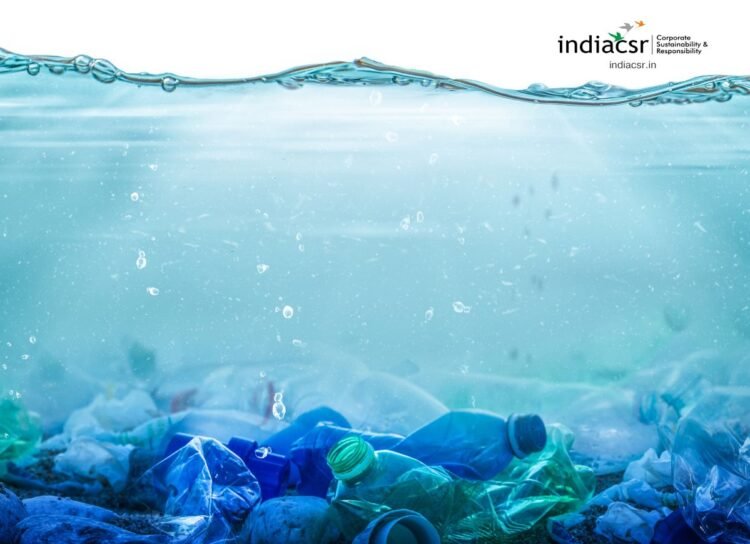
There’s a saying that I’m quite fond of: the pessimist sees the glass half empty, the optimist sees the glass half full – but the realist sees the glass for what is already there, and what more it can contain.
If you, like me, have been following environment-related developments over the last few years, there is certainly a case to be made for greater environmental realism. The global dialogue around sustainability has gained significant momentum in recent times. A growing number of businesses are implementing the steps needed to minimise the environmental impact of their operations.
And nowhere is this more apparent than plastic pollution, which has attracted major attention from all stakeholders due to its detrimental effects on wildlife, ecosystems, and human health across the globe. Many forward-thinking companies, both in India and across the globe, are stepping up efforts to reduce their plastic footprint and ushering in a cleaner, greener future.
So how are they doing it?
Rethinking plastics: Taking the conversation from waste to opportunity
Leading businesses are adopting many innovative practices to scale up their sustainability initiatives and combat plastic waste – and one of the most prominent ways they are doing this is the way they think about packaging.
With packaging frequently highlighted as one of the primary sources of plastic waste, companies are now re-evaluating their packaging strategies. The goal is to reduce the amount of plastic used by exploring and adopting sustainable alternatives, including biodegradable or compostable materials, as well as increasing the use of recycled plastics or embracing packaging-free solutions.
For instance, by achieving 94.5% recyclable packaging in FY23, Marico has made remarkable progress toward the goal of 100% recyclable packaging by 2025. The company also adheres to the Extended Producer Responsibility (EPR) guidelines and, as of FY22, has collected and recycled approximately 18,584 MT of post-consumer waste, including multilayer plastic (MLP), rigid and flexible plastic in FY23. Marico has started using recycled plastic for its products in primary and secondary packaging. We have completed 2 projects successfully by using recycled plastic from 10%-20%
The impact will be created when every company decides to make an effort beyond the point of sale, in order to build a sustainable ecosystem, throughout the product lifecycle, including responsible sourcing and eventual disposal. Marico’s Samyut program, for instance, deploys a three-phase maturity roadmap for sourcing across its value chain, that incorporates the key attributes – ethical responsibility, environmental conservation, and social accountability.
Another major trend in recent years is the evolution of the discourse around plastics. With more and more people realising the critical role that plastics play in our everyday lives, the conversation has evolved from eliminating plastic waste to managing it. The emergence of a circular economy around plastic waste recycling and reuse has been a key driver of this shift in approach. Many companies, as a result, are designing products and packaging with recycling and reusability in mind. Closed-loop systems are being implemented to ensure that plastics are recycled and reintroduced into the manufacturing process rather than disposed of in landfills or oceans.
A significant step in promoting this more sustainable, resource-efficient economy that reduces plastic waste is the rise in circularity-based interventions within and beyond conventional sectoral boundaries.
Focused collaboration to drive meaningful impact has been an encouraging factor for top corporations to partner with government agencies, non-profit organisations, and other businesses to promote research and innovation, develop industry-wide standards, best practices and policies that support sustainable outcome.
Take, for example, the India Plastics Pact, a transformational and collaborative platform by WWF India and CII anchored at the CII-ITC Centre of Excellence for Sustainable Development (CESD), with support from WRAP, a UK-based global NGO. Many companies such as Marico, Bisleri, Amazon, Mondelez, and Mother Dairy are members of the Plastics Pact, which envisions ‘a world, where plastic is valued and does not pollute the environment.’ Plastic pollution demands immediate action from all stakeholders, across the globe. Thankfully, as recently highlighted by the Intergovernmental Panel on Climate Change (IPCC), we now have the technology to address the problem at scale. By rethinking how we approach the issue, companies can lead the charge to inspire meaningful change, make a difference, and, in the process, create a healthier and sustainable planet for future generations.
About the Author
Amit Bhasin, Chief Legal Officer & Group General Counsel and Secretary of the CSR Committee, Marico Limited







